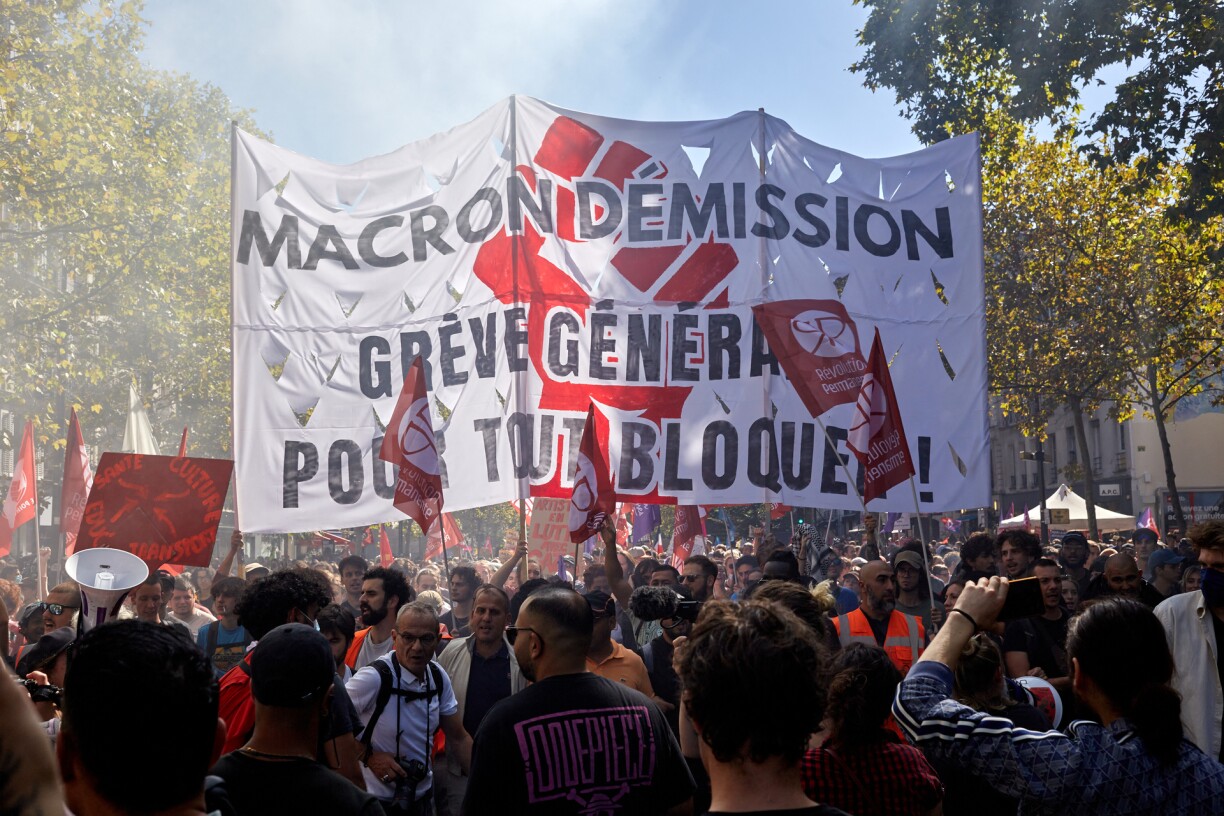
A second day of nationwide industrial action is taking place in France on Thursday, called by a joint union committee to protest budget austerity and demand greater tax justice. Turnout is expected to be lower than during the previous strike on 18 September.
This marks the third day of social mobilisation since the start of the new academic year, following a “Block Everything” day of action on 10 September that was organised via social media and backed by unions like the CGT and Solidaires.
For Thursday’s protests, the CGT union had recorded approximately 240 planned actions across the country. These include marches in major cities and early morning gatherings at roundabouts and motorway junctions.
In Paris, the main procession is scheduled for the Left Bank, starting at 2pm from Place d’Italie and concluding at Place Vauban, near Les Invalides and the National Assembly.
The disruption to public transport is significantly less severe than during the 18 September strikes.
In the capital, the RATP metro and bus network is operating normally. The only exception is the RER B line, which serves Paris from north to south. However, the Minister for Transport stated that traffic would be “almost normal” within the city limits.
This contrasts sharply with the 18 September action, when metro services were limited to peak hours at a reduced frequency, and RER lines experienced major disruptions.
For national rail services, the SNCF has announced that TGV traffic is normal. Some disruptions are, however, expected on regional services, including TER, RER, Transilien, and Intercités trains.
In the aviation sector, the ministry reported 75 striking staff and warned that “delays are to be expected,” though the impact is expected to be “limited”. Officials stressed that “no significant disruption is anticipated at Paris airports”.
The rate of striking school staff is also anticipated to be lower than on 18 September. The leading primary school union, FSU-Snuipp, forecasts a participation rate of around 10%, compared to 17.48% during the previous action.
Aurélie Gagnier, co-general secretary of FSU-Snuipp, suggested that “political uncertainty is hampering mobilisation.” However, she emphasised that teaching staff broadly support the strike’s core aims, stating, “the staff we meet support the need for more tax and social justice and recognise the urgent need for a budget that meets the needs of schools.”
A similar slight decline is expected in secondary schools. Sophie Vénétitay, general secretary of the main secondary union Snes-FSU, noted the practical difficulty for teachers to strike multiple times in a single month, especially at the start of the academic year when it is “important to see the students, to build a bond with them.”
A broad coalition of eight public sector unions has again called for strikes, with the education and tax administration sectors typically forming the core of the protesters.
The unions’ demands include a pay rise, improved working conditions, gender equality, and the creation of new civil service posts. However, mobilisation in this sector has previously been modest. On 18 September, only 12.7% of central government civil servants went on strike, with local government and hospital sectors each seeing just over 7% participation.
Separately, in the health sector, around 30 unions and associations are planning a “marche blanche” (a silent protest march) in Paris on Saturday, 4 October. The demonstration aims to “demand that health budgets be ring-fenced.”